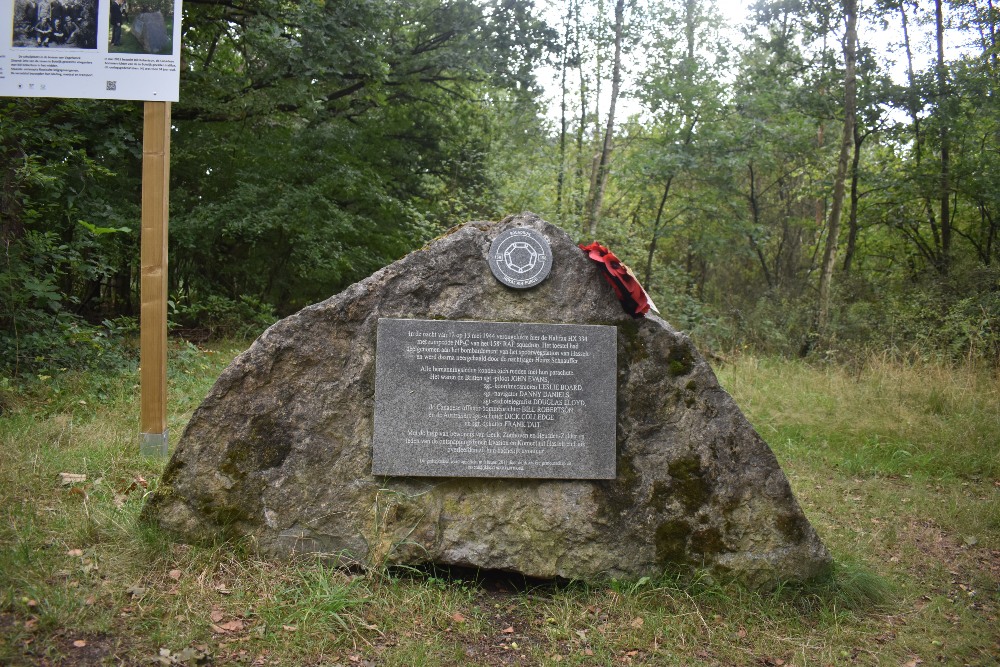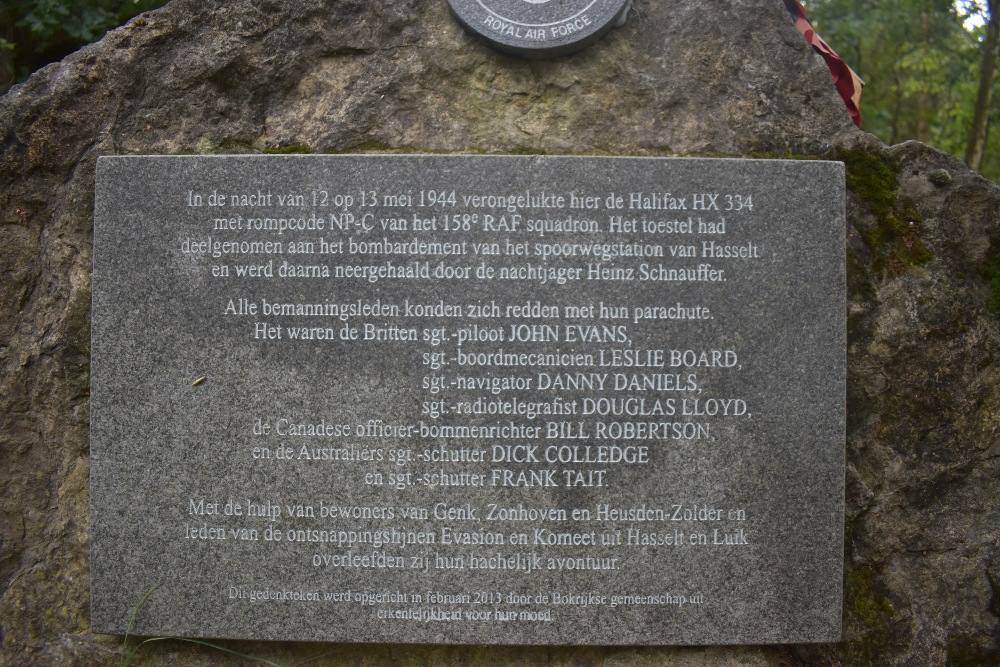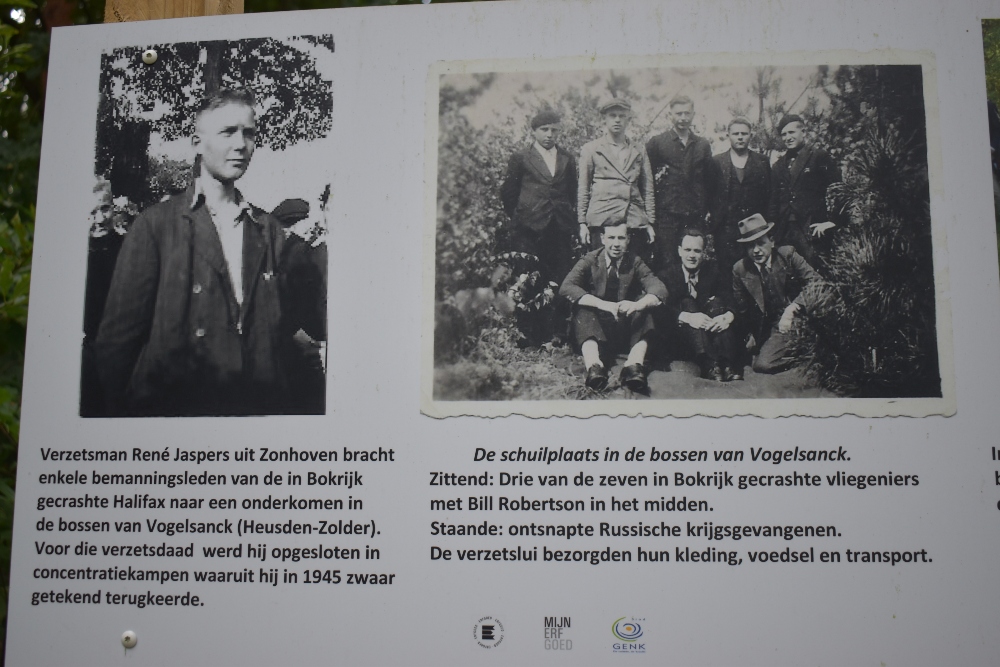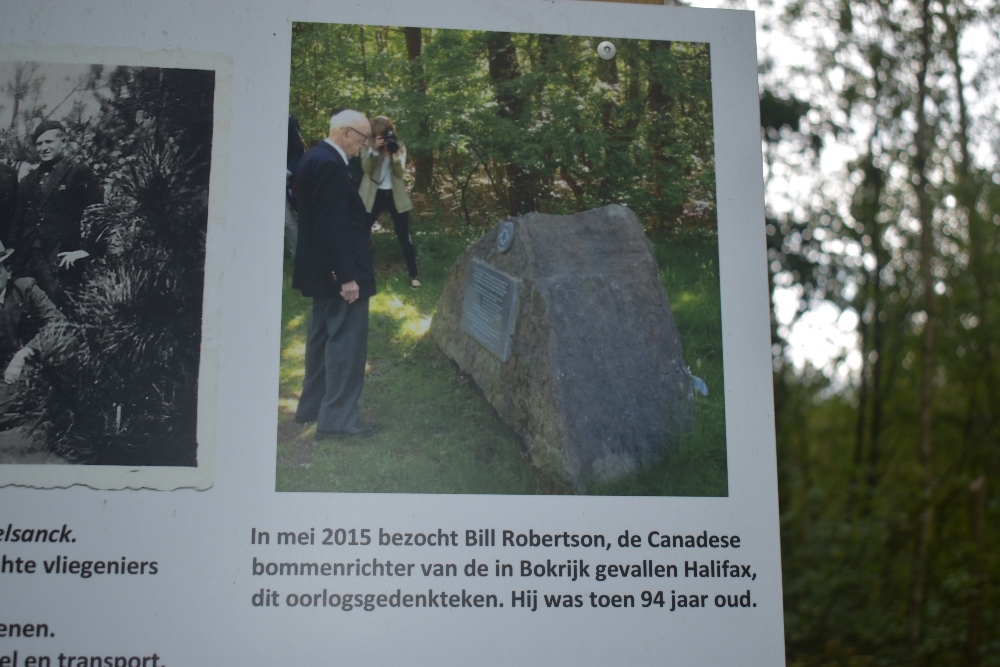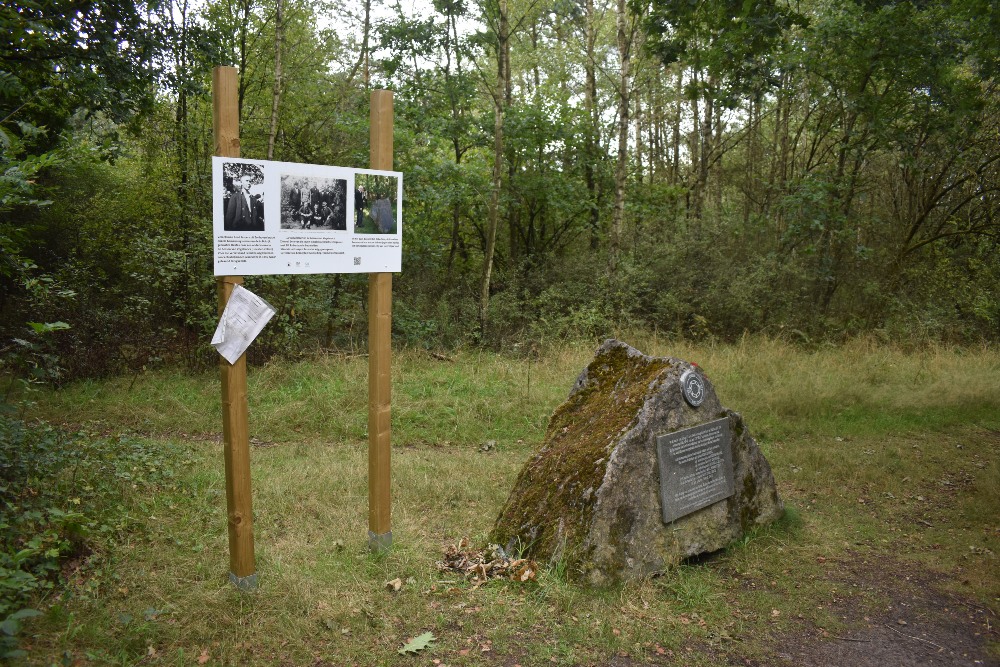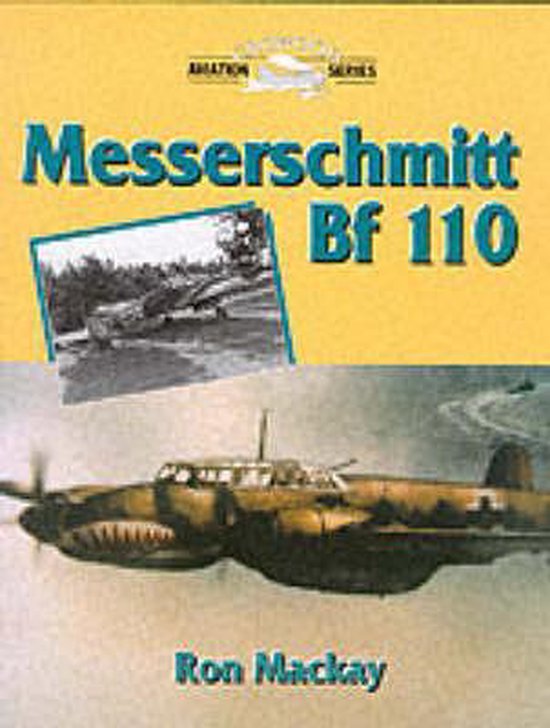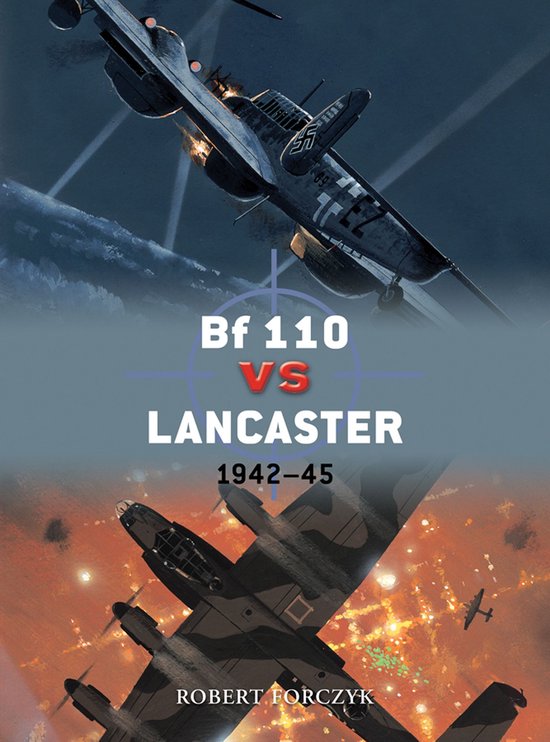Crash Site Handley Page Halifax HX334
Memorial to the crew of Handley Page Halifax Mk III ,HX334 of 158 Squadron RAF.
Halifax call sign NP-C was shot down on the night of the 12th/13th May 1944.All seven of the crew survived
the crash with the aid of their parachutes .
The aircrew were:
Flying Officer Bill Robertson ,(bomb aimer ) RCAF
Sgt John Evans (pilot) RAF
Sgt Danny Daniels (navigator ) RAF
Sgt Douglas Lloyd (radio operator) RAF
Sgt Leslie Board (flight mechanic) RAF
Sgt Dick Colledge (gunner) RAAF
Sgt Frank Tait (gunner) RAAF
The aircraft left it's homebase of RAF Lissett in Yorkshire at 21.56 and took part in the not too successful bomb run on the marshalling yards of the nearby Hasselt railway station .It then became the 64th victim of Heinz-Wolfgang Schnaufer ,the leading night fighter ace of the Second World War. The "night ghost of St Trond " was to claim another two "kills" that night and by the end of the war had 121 "kills" accredited to his name, and furthermore, he would stay loyal throughout the war to Bf 110s.
Of the seven-man aircrew ,five would remain at large till they were liberated in September 1944. While the Australian pair would be captured and end up at Stalag Luft 7 ,the other five would form part of Operation Marathon which was designed to help allied airmen who found themselves in Nazi-occupied Europe evade capture .Thus ,they were helped by local resistance escape capture and incorporated in to the Comet Line and some would be further assisted by the Belgian White Brigade.
The information board to the left of the memorial stone has a group photograph that shows three of the aircrew along with Russian POWs who had escaped from thier work camp .The Russians were forced labour used in local coal mines at Zwartberg and Houthalen and were also hidden by members of the Comet Line. The young man in the photograph to the left of the group is resistance member Rene Jaspers who was 18 years old when he was captured by the Gestapo along with his father on the evening of the 5th August 1944.What happens next to Rene Jaspers shows what the potential consequences are for those aiding evading allied aircrews .In short after interrogation he is sent via Fort Breendonk to various concentration camps ,where he just about survives until he is able to return home on the 23rd of May 1945.His father Jules however, has a shorter and more "fortuitous" capture. He is sent to Saint-Gilles prison in Brussels, before being loaded on to the "Nazi ghost train " that never got to its intended destination as the allied armies were closing in.
Those interested in knowing more details of three of the allied airman's "cat and mouse " story including Bill Robertson who still kept in touch with family members of those who helped him, and returned 71 years later (as shown in the coloured photograph), plus the brave local members of the resistance who risked all to help; see this link as a starting point: http://www.evasioncomete.org/flloydda.html
Do you have more information about this location? Inform us!
Source
- Text: Ian Paterson
- Photos: Ian Paterson
Related books
Nearby
Point of interest
Monument
- Regional RAF Memorial Genk-Boxbergheide - Genk
- War Memorial Godsheide - Godsheide (Hasselt)
- Memorial to the Drowned Children - Godsheide (Hasselt)
Cemetery
- Belgian Graves Veterans Godsheide - Godsheide (Hasselt)
- Russian War Graves Genk - Genk
- Commonwealth War Graves Genk - Genk
Fortification
- Diepenbeek Lock Bunker D1 - Diepenbeek
- Diepenbeek Lock Bunker D2 - Diepenbeek
- Diepenbeek Lock Bunker D3 - Diepenbeek
